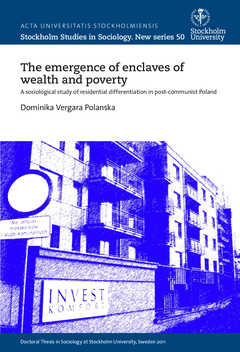The general aim of this thesis is to examine the urban transformation taking place in the post-communist context since the fall of communism. The more specific aim of this thesis is to study the processes of residential differentiation taking place in the urban landscape of the Polish city of Gdansk after the introduction of the capitalist system. The focus is on different forms of residential differentiation and the social, economic and historical factors behind these forms in various neighbourhoods in the city and the investigation of their emergence and development in space and in time. A depriving neighbourhood along with three gated residential developments have been chosen as two extremes reflecting involuntary and voluntary residential differentiation in the city. The ambition is to explain the emergence and the ever increasing popularity of gated communities in the city, but also in the country side by side with the phenomenon of deepening deprivation of other neighbourhoods. The four studies included in the thesis cover different scales reaching from the national level in the legal and regulatory framework (and its implications on housing, revitalization and spatial planning in the country) and the discourses prevalent in the national and local media on the topic of gated housing and the specific deprived area to the level of neighbourhoods where different forms of housing are mapped and residents are asked for their opinion on their places of residence.


